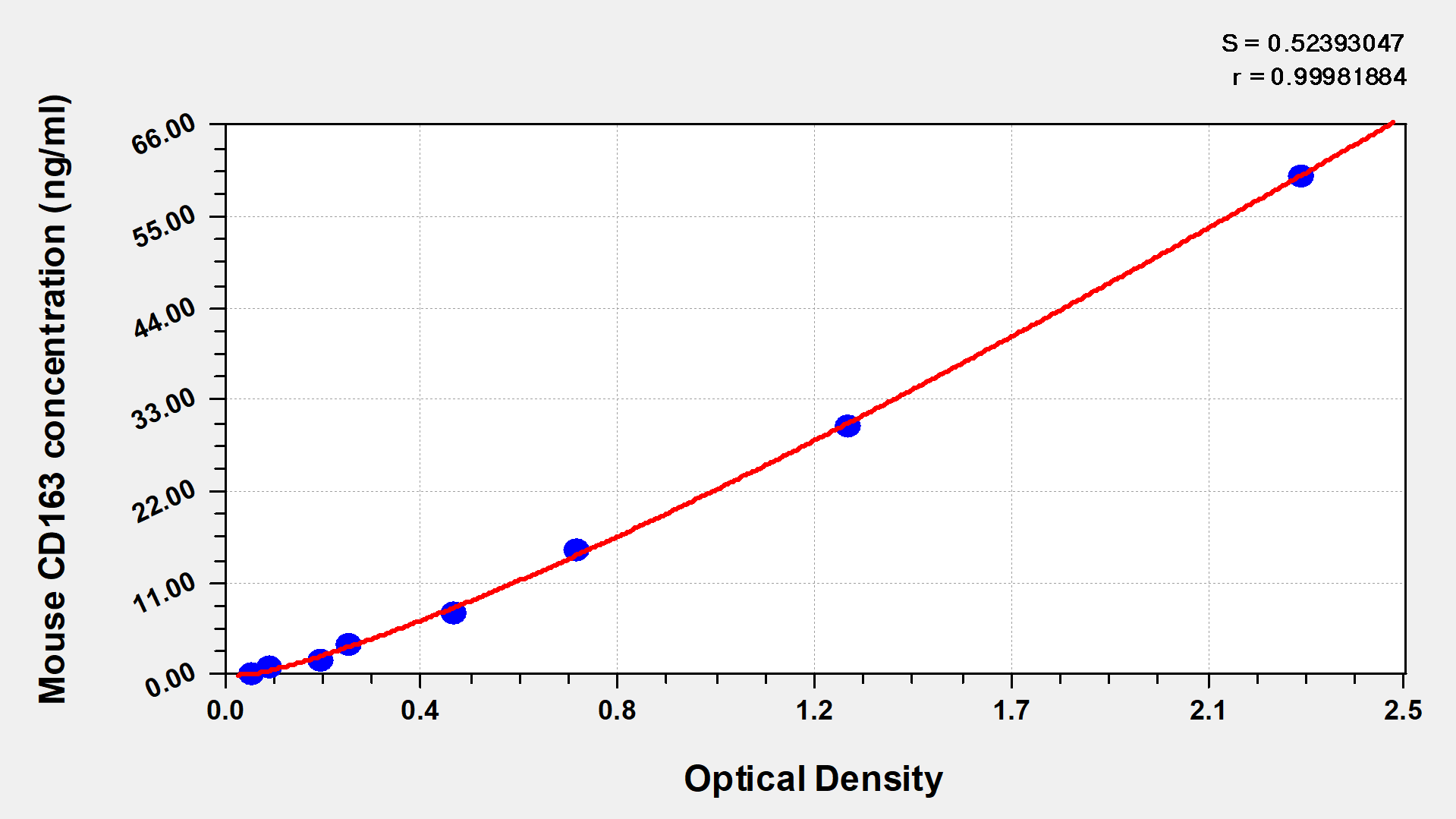This mouse CD163 ELISA kit employs the quantitative sandwich enzyme immunoassay technique to measure the levels of mouse CD163 in multiple samples, including serum, plasma, or tissue homogenates. It also uses the enzyme-substrate chromogenic reaction to visualize and analyze the analyte levels through the color intensity. The intensity of the colored product is in direct proportion to the CD163 levels in the sample and is measured at 450 nm through a microplate reader.
CD163 is a hemoglobin scavenger receptor only expressed in the monocyte-macrophage system and mediates endocytosis of hemoglobin: haptoglobin (Hb: Hp) complexes. CD63-mediated hemoglobin metabolism is linked to inflammation. CD63 is widely used as a marker for alternatively activated macrophages. A recent report showed that CD163 expression is associated with angiogenesis. CD163 is a phagocytic marker, of which expression is thought to be exclusive to perivascular (PVM) and meningeal macrophages.CD163 has an immunoregulatory function and has been found in the parenchyma in other inflammatory diseases such as HIV-encephalitis and multiple sclerosis.




